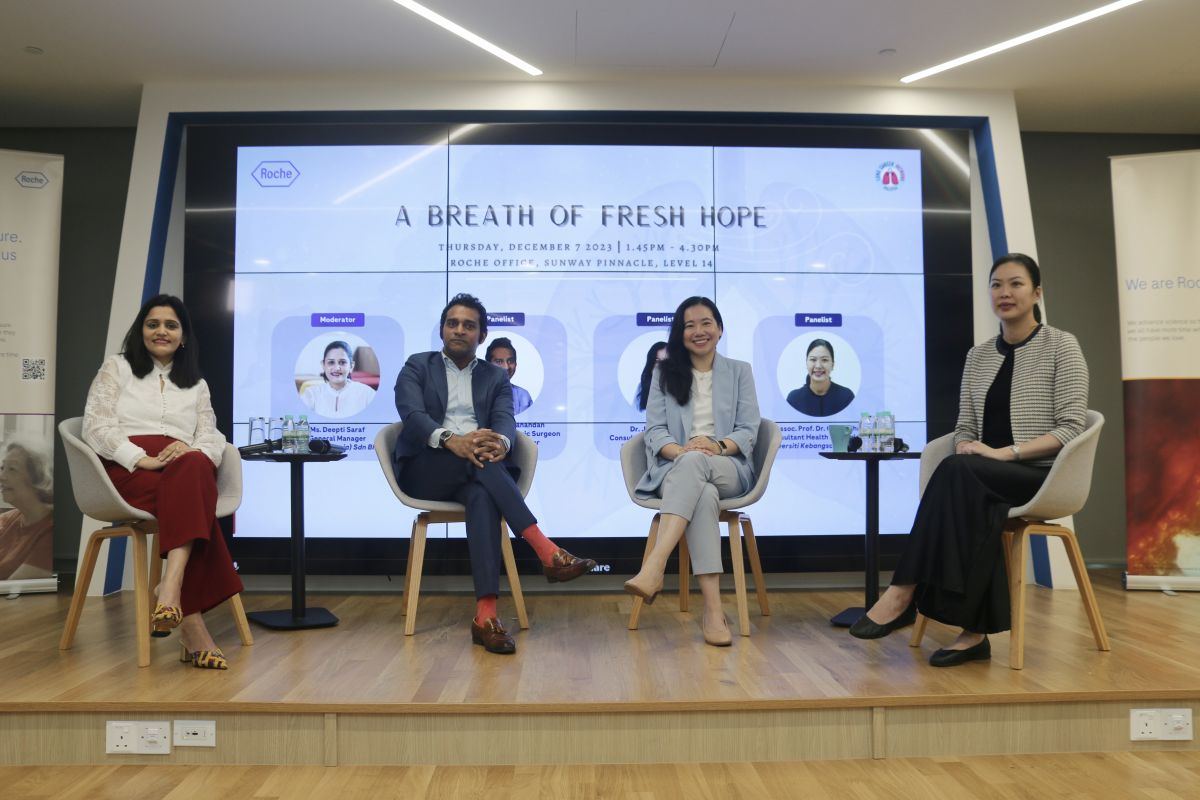SUBANG JAYA, Dec 21 — Over 2.2 million lung cancer cases were reported in 2020 globally, and more than 770,000 of them were among women.
Skyrocketing by a massive 79 per cent in the past few decades, that brings lung cancer to the list of the top three types of malignancies seen in the global female population, right after breast and colorectal.
Last December 7, Roche Malaysia hosted a panel discussion in collaboration with the Lung Cancer Network Malaysia (LCNM) to discuss the alarming prevalence of lung cancer in non-smoking Malaysian women, addressing the social stigma and related medical implications.
Moderated by Deepti Saraf, general manager of Roche Malaysia, the panel consisted of Dr Anand Sachithanandan, consultant cardiothoracic surgeon and co-founder of LCNM, Dr Jennifer Leong, consultant clinical oncologist, and associate professor Dr Caryn Mei, consultant health psychologist.
All three specialists emphasised the need to increase access to diagnostic and therapeutic tools for women battling lung cancer, a commonly overlooked patient demographic that accounts for a significant portion of the national disease burden.
“Less than 2 per cent of women here are smokers, but lung cancer is the fourth most common malignancy,” said Dr. Anand.
“There is a genuine lack of awareness amongst both the general public and doctors as well about factors other than smoking that predispose women to lung cancer, including secondhand smoke and high levels of exposure to air pollution, asbestos, or radon.
“A family history for the disease is another significant risk factor that is often overlooked.”
He maintained that lung cancer is no longer a male smokers’ disease, but if detected early, it can be treated effectively and often cured.
Aside from the medical implications, the panel also discussed the barriers to seeking a proper diagnosis, especially for women of younger age, underscoring the implications of social stigma.
“Many women harbour the preconceived notion that because they don’t smoke, they are not at risk of lung cancer. This is a dangerous misconception to have,” said Dr Leong.
“At times, even when displaying typical symptoms, they can easily get missed and not get the required medical attention in the earlier stages of disease, affecting their chances at longer survival.”
Dr Chan talked about the mental health burden seen in cancer patients, pointing out how it’s a commonly neglected aspect of cancer treatment.
“Getting diagnosed with cancer is an extremely significant life event for patients, for obvious reasons.
“There is a significant group of them who never reach the point of seeking professional help to process the grief, and the effects of it can end up exacerbating their already declining physical health.”
Dr Chan added that extreme states of despair and toxic positivity can harm patients and their families’ wellbeing.
“A heightened awareness of risk factors that translate to actionable steps like regular health screenings is the key to changing the lung cancer landscape in Malaysia,” said Deepti.
“There is also a need to bolster the infrastructure of oncology care and work towards equitable therapeutic access for women with lung cancer, regardless of their socio-economic status.”












